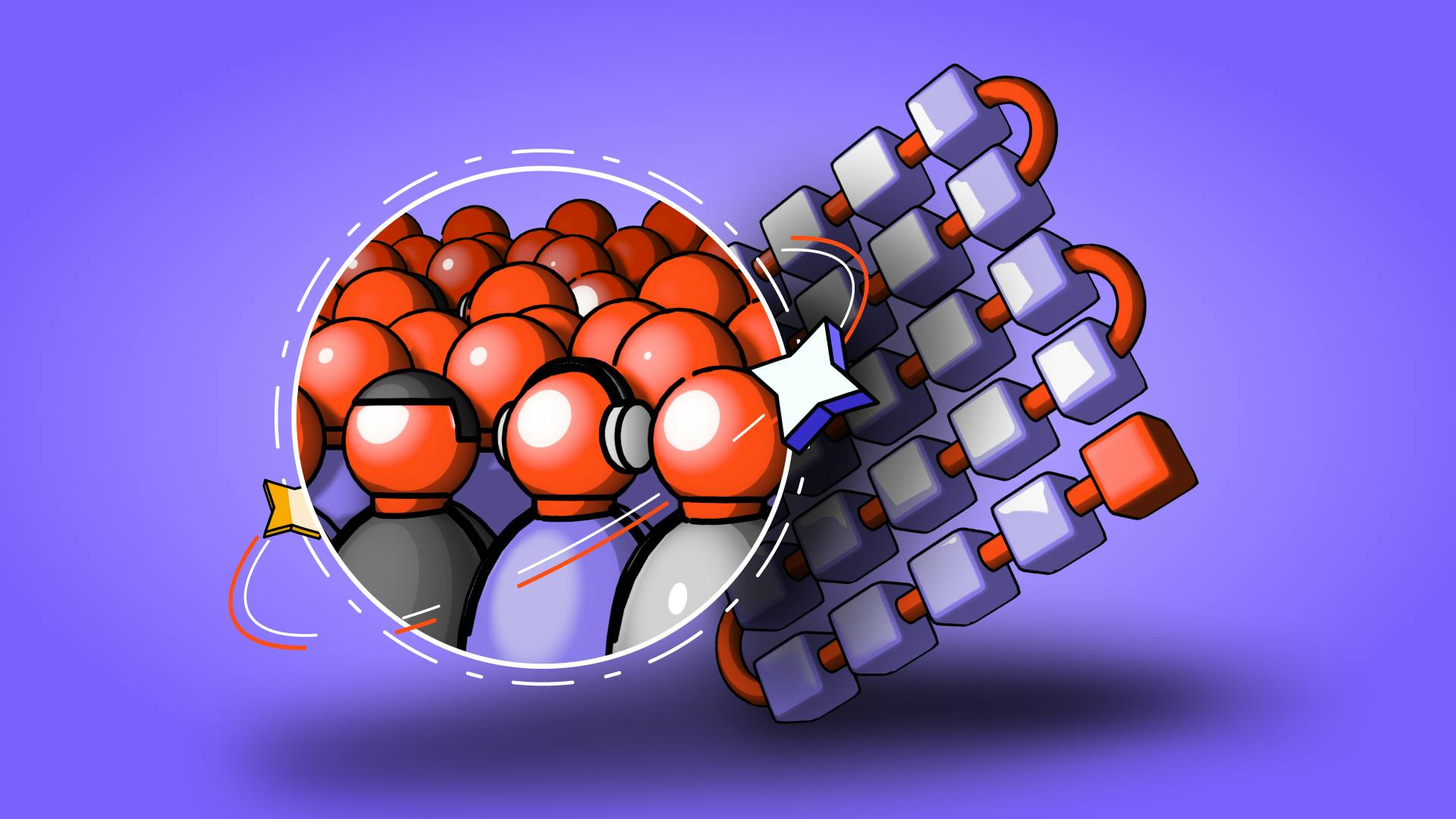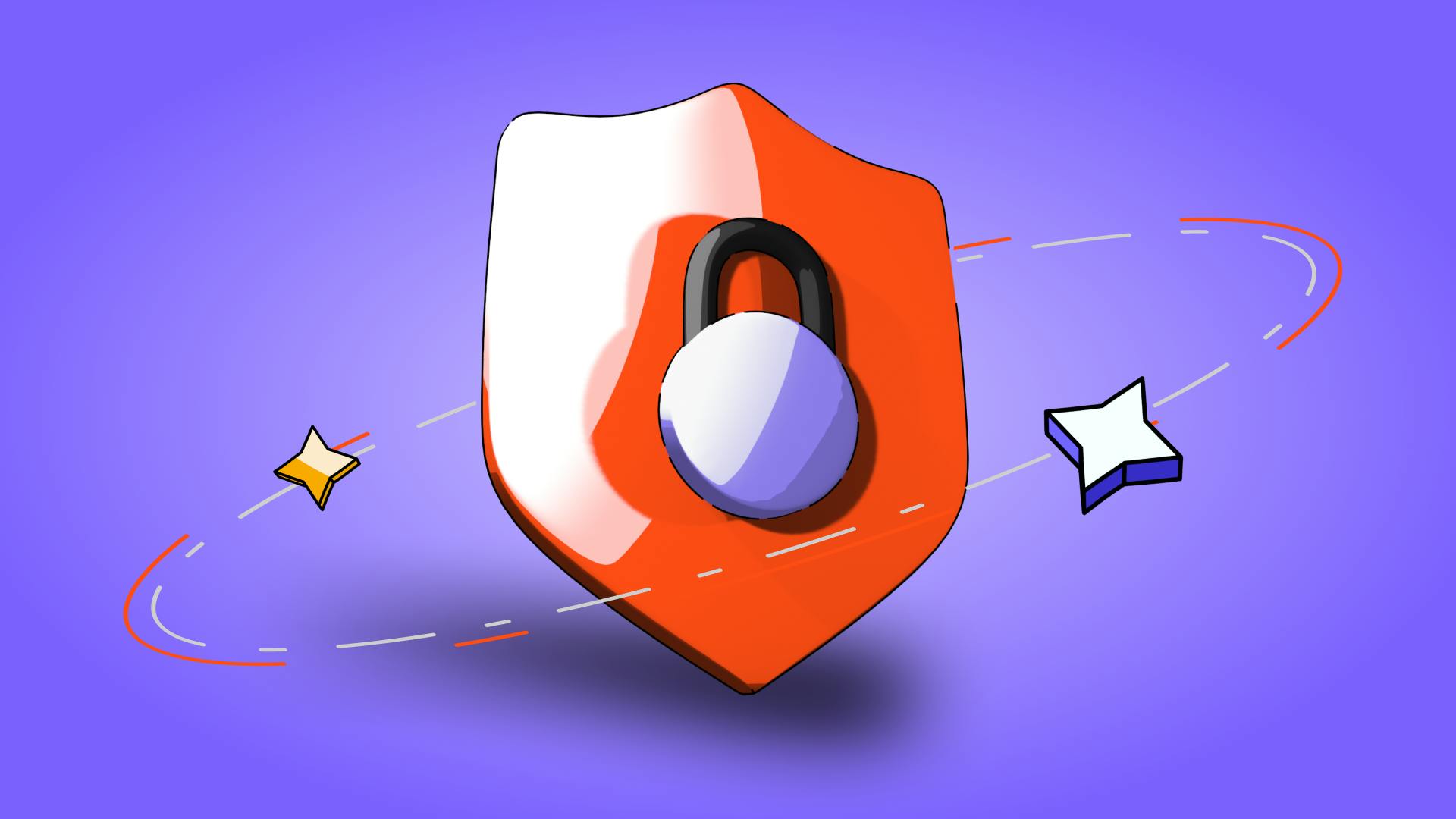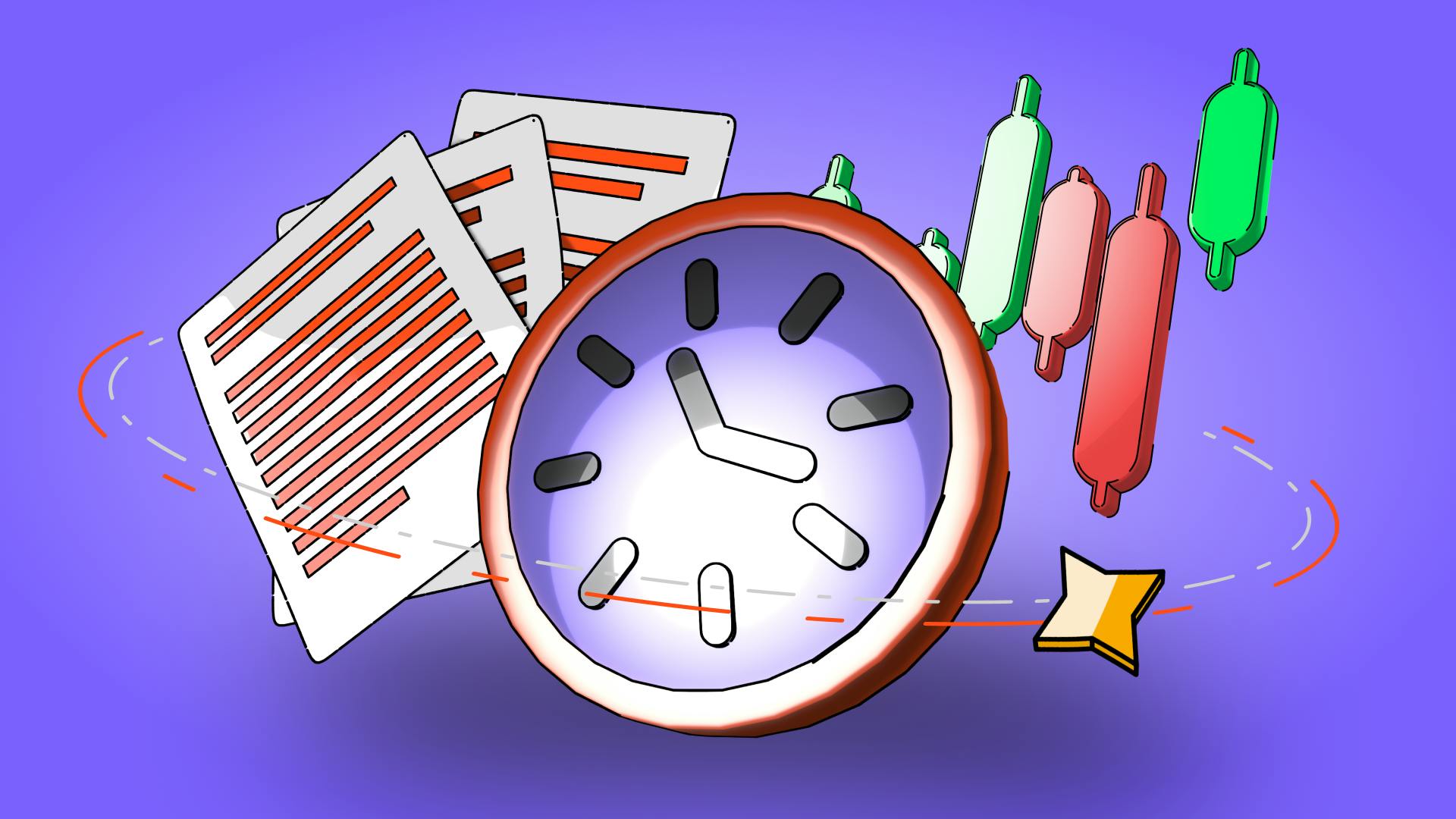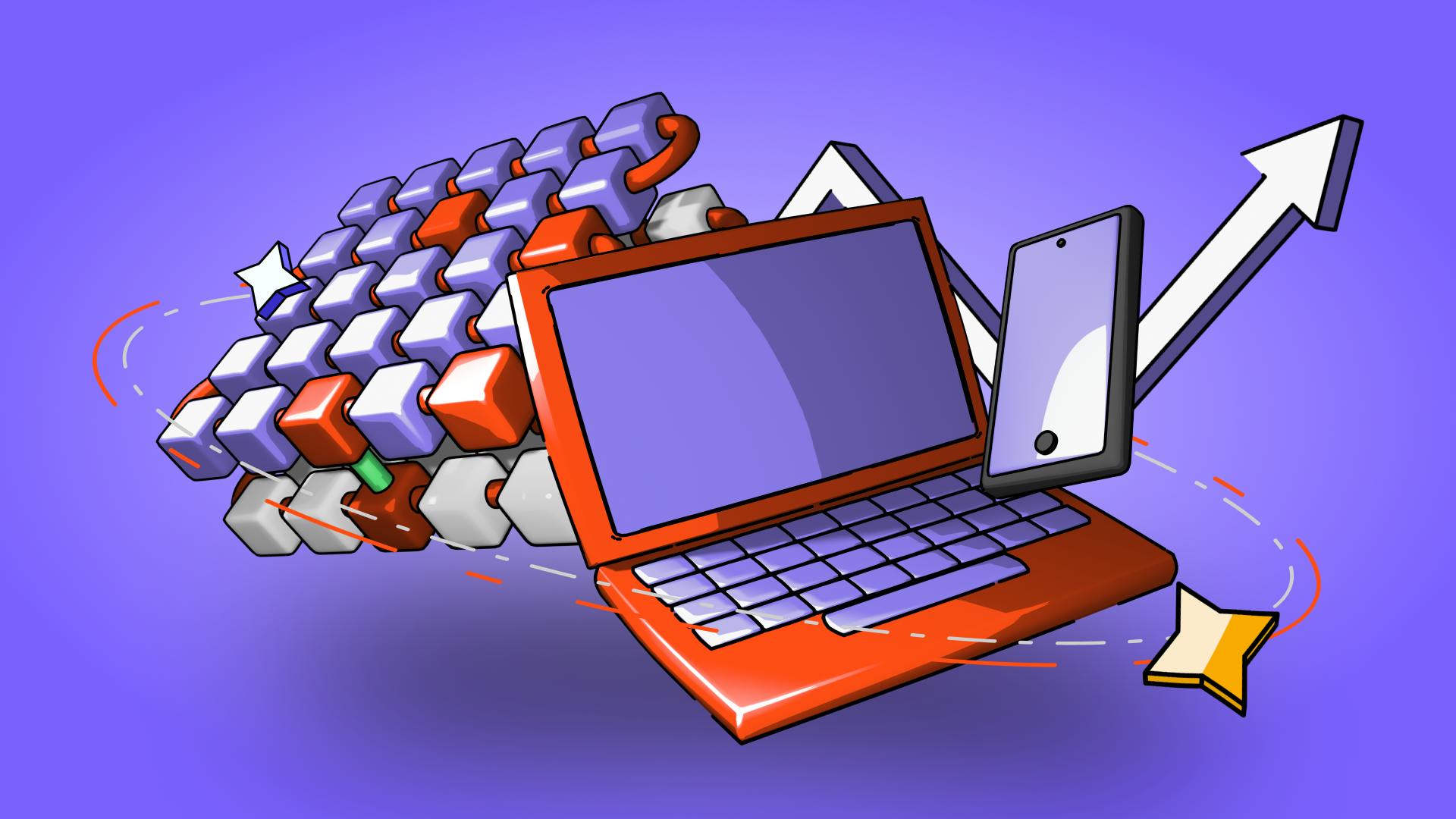All About DAOs: How Decentralized Autonomous Organizations Work
December 5, 2025

by Kamil S
December 5, 2025
Decentralized Autonomous Organizations (DAOs) have emerged as a groundbreaking model for governance, representing a significant shift towards an open and democratic approach to organizational operations. By leveraging blockchain technology, DAOs facilitate decentralized decision-making and autonomy, marking a departure from traditional centralized control structures. Beyond the promises and innovations DAOs bring to the table, they also face a set of challenges yet to be fully understood. This blog will explore all these aspects, diving deep into the world of DAOs to uncover the promises they hold and the obstacles they must navigate.
A DAO is an organization that is run through rules encoded as computer programs called smart contracts. These are autonomous, programmatic, and decentralized entities without a central authority. At its core, a DAO is designed to be open and global, with its operations and rules transparently executed on the blockchain. This structure allows any actions taken within the organization to be verified and audited by anyone, ensuring transparency and trust.
DAOs operate on the principles of collective decision-making, with token holders typically having the right to vote on important decisions affecting the organization. These decisions can range from financial management and investment strategies to project developments and governance policies. The voting power is usually proportional to the number of tokens an individual holds, aligning the interests of the organization with those of its members.
The concept of DAOs is not new, but their application and popularity have grown exponentially with the advent of blockchain technology. The first significant appearance of a DAO in the blockchain ecosystem was "The DAO," launched on the Ethereum network in 2016. It was envisioned as a venture capital fund without a traditional management structure, where investment decisions would be made collectively by its members. Despite facing a significant setback due to a vulnerability in its code, The DAO marked a pivotal moment in the exploration of decentralized governance models.
Since then, the evolution of DAOs has been characterized by increased security measures, innovative governance models, and a broadening of their applications beyond mere investment vehicles. Today, DAOs are used for a variety of purposes, including managing decentralized finance (DeFi) protocols, curating digital art collections, funding public goods, and even governing decentralized social media platforms. This diversification reflects the flexibility of DAOs as a framework for collective action in a decentralized context.
The growth of DAOs is also indicative of a larger trend towards decentralization in the cyber domain. As blockchain technology continues to mature, DAOs offer a glimpse into a future where organizations can operate globally and democratically, without the need for traditional hierarchical management structures. This evolution challenges conventional notions of corporate governance and opens up new possibilities for collaboration and community-driven initiatives. By leveraging blockchain technology to ensure transparency, security, and collective governance, DAOs embody the principles of decentralization and democratization. The role of DAOs is expected to expand, potentially transforming a wide range of industries and societal norms.
Decentralized Autonomous Organizations (DAOs) mark a significant departure from traditional organizational structures, embodying a new era of governance and operational efficiency powered by blockchain technology. Understanding the building blocks of DAOs is crucial for appreciating their innovative approach to collective decision-making and management.
A DAO is built on several foundational components that distinguish it from other forms of organizations:
Smart Contracts: At the heart of every DAO are smart contracts, self-executing contracts with the terms of the agreement directly written into code. These contracts autonomously perform various functions, from governance to financial transactions, based on predefined rules and without the need for intermediaries.
Token-based Governance: DAOs typically use tokens to represent voting power within the organization. Token holders can propose changes, vote on new initiatives, or make decisions regarding the use of funds. This mechanism ensures that decision-making power is distributed according to stake and investment in the organization.
Transparency: Since all transactions and decisions are recorded on the blockchain, a DAO operates with a high level of transparency. This openness allows anyone to audit the organization's activities, fostering trust among members and with the public.
Decentralization: By design, DAOs are decentralized, meaning they are not controlled by a single entity or a small group of individuals. This structure aims to eliminate central points of failure and biases, promoting a more democratic decision-making process. However, the distribution of governance tokens can sometimes lead to a paradoxical outcome, where a DAO becomes a centralized entity dominated by a small group of individuals holding the majority of tokens, leaving regular users with minimal voting power.
Comparing DAOs with traditional organizations highlights several key differences in their approach to governance, operation, and culture:
Governance: While traditional organizations often follow a hierarchical structure with decisions made by executives or boards, DAOs rely on a distributed governance model. Every token holder has a say in decisions, proportional to their token ownership, ensuring a democratic process. But as previously mentioned, an equitable distribution or access to governance tokens is needed for this to take full effect.
Operation: DAOs operate on the principles of automation and self-enforcement through smart contracts, significantly reducing the need for human intervention and administrative bureaucracy. In contrast, traditional organizations depend heavily on manual processes and personnel for their operations.
Flexibility and Agility: The decentralized and automated nature of DAOs allows for greater flexibility and agility in responding to changes and implementing new ideas. Traditional organizations, with their layers of management and slower decision-making processes, often struggle to adapt quickly.
Access and Participation: DAOs enable global participation, allowing anyone with an internet connection and interest in the organization to become a member, regardless of geographical location. Traditional organizations are typically limited by geography, regulatory constraints, and more rigid membership requirements.
Trust and Security: Trust in DAOs is built on the transparency and immutability of the blockchain, contrasting with the trust in traditional organizations, which is often based on reputation, regulatory compliance, and personal relationships.
With their unique structure, DAOs offer several advantages over traditional organizational models but also face distinct challenges that necessitate careful consideration and innovative solutions.
Enhanced Transparency: DAOs operate on blockchain technology, ensuring that all transactions and decisions are recorded on a public ledger. This level of transparency allows members to audit and verify activities, fostering trust and accountability within the organization.
Global Participation: Unlike traditional organizations that may be limited by geography, DAOs enable worldwide participation. Anyone with an internet connection can join a DAO, contribute to its goals, and have a say in its governance, regardless of their physical location.
Reduced Operational Costs: By automating governance and operational processes through smart contracts, DAOs can significantly reduce the need for intermediaries and administrative overhead. This lean operation model allows for more efficient use of resources.
Democratic Decision-Making: DAOs democratize decision-making by allowing token holders to vote on proposals and changes. This ensures that decisions reflect the collective will of the members, rather than being dictated by a select few.
Innovation and Flexibility: The decentralized and open nature of DAOs fosters innovation. Members can propose and implement changes rapidly, allowing the organization to adapt and evolve in response to member needs and external conditions.
Security Risks: The reliance on smart contracts exposes DAOs to potential security vulnerabilities. Flaws in the contract code can lead to significant losses, as seen in the infamous "The DAO" hack.
Scalability Issues: As DAOs grow in membership and activity, ensuring that the decision-making process remains efficient and manageable can be challenging. Large numbers of proposals and votes may overwhelm the system and its participants.
Concentration of Power: Despite the ideal of decentralization, the distribution of governance tokens can lead to power being concentrated in the hands of a few, undermining the democratic ethos of DAOs.
Regulatory Uncertainty: The legal status of DAOs is still evolving, leading to uncertainties around liability, taxation, and compliance. This regulatory gray area can pose challenges for DAOs operating in multiple jurisdictions.
Participation Inequality: While DAOs allow for global participation, engaging a diverse and active membership base can be difficult. There is a risk of low voter turnout or decision-making being dominated by a small group of highly active members.
The concept of Decentralized Autonomous Organizations (DAOs) has moved beyond theory, finding practical applications across various sectors. From finance to art, DAOs are demonstrating their potential to revolutionize traditional systems. This section explores both the success stories and the lessons learned from DAOs' real-world implementations.
Decentralized Finance (DeFi): Perhaps the most prominent application of DAOs is in the DeFi sector. Projects like MakerDAO have shown how DAOs can manage decentralized currencies and lending services effectively. MakerDAO governs the stablecoin DAI, maintaining its peg to the US dollar through decentralized decision-making.
Art and Collectibles: DAOs are also making waves in the art world. The DAO, Flamingo DAO, focus on investing in NFTs and digital art, demonstrating the power of collective ownership and investment strategies in the market of digital collectibles.
Public Goods Funding: Gitcoin DAO is another example, focusing on funding public goods in the open-source development space. It uses a decentralized governance model to allocate resources to projects that contribute to the Ethereum ecosystem, showcasing how DAOs can support innovation and collaboration.
Environmental Initiatives: KlimaDAO aims to address climate change by incentivizing carbon offsetting. It uses a DAO structure to guide the investment into tokenized carbon credits, showing how DAOs can be utilized for environmental governance and sustainability efforts.
While there are numerous success stories, the DAO ecosystem has also witnessed failures that provide critical learning opportunities:
The DAO Hack: The first and most famous DAO, known simply as "The DAO," was subject to a significant hack in 2016 due to vulnerabilities in its smart contract code, leading to the loss of over $50 million in Ether. This incident highlighted the importance of rigorous security audits and the potential risks associated with smart contract vulnerabilities.
Regulatory Challenges: Some DAOs have faced legal and regulatory challenges that impede their operations. These cases underscore the need for clarity in the legal status of DAOs and the importance of compliance with existing financial regulations. However, regulations should strike a fine balance between protecting users and fostering innovation.
Governance Issues: Several DAOs have struggled with governance issues, such as low voter turnout and the concentration of voting power among a small number of token holders. These challenges emphasize the need for effective governance mechanisms that encourage broad participation and prevent centralization.
Scalability and Efficiency: As DAOs grow, they often encounter scalability issues, with the decision-making process becoming cumbersome and slow. These experiences stress the importance of designing scalable governance models that can accommodate a large number of participants without sacrificing efficiency.
The journey of DAOs from a novel concept to real-world application is marked by both groundbreaking achievements and valuable lessons. Success stories across various sectors demonstrate the versatility and potential of DAOs to democratize governance, enable collective ownership, and foster innovation. At the same time, the challenges encountered serve as reminders of the complexities of decentralized governance and the continuous need for development, security, and legal frameworks that support the sustainable growth of DAOs. As the ecosystem evolves, the experiences of both successful and failed DAOs will shape the future of decentralized organizations, guiding them towards more secure, efficient, and inclusive models.
As we look toward the horizon of technological and societal evolution, DAOs are positioned to drive innovation, embodying the principles of decentralization, transparency, and collective governance. The journey of DAOs thus far offers a glimpse into a future where organizations are not just entities but communities that operate on the foundational values of trust, equity, and shared purpose.
The potential of DAOs to drive future innovations is vast and multi-faceted. In the world of finance, DAOs promise to further revolutionize DeFi by creating more inclusive financial systems that operate beyond the reach of traditional banking institutions. In the arts and creative industries, DAOs could redefine ownership and copyright, empowering creators and audiences alike through shared governance models.
Furthermore, DAOs have the potential to address some of the most pressing global challenges. From climate change initiatives to open-source technology development, DAOs can mobilize resources and human capital in unprecedented ways, fostering collaboration and innovation to tackle complex issues.
To realize their full potential, DAOs must navigate the challenges that have surfaced in their early implementations. As previously mentioned, this includes enhancing the security of smart contracts, refining governance models to ensure broad and equitable participation, and navigating the evolving regulatory landscape. The lessons learned from both successes and setbacks are invaluable, providing a roadmap for building more resilient and effective decentralized organizations.
The role of DAOs in shaping the future will likely be characterized by their ability to offer alternative models for organization and collaboration. As blockchain technology continues to mature, DAOs could become the standard for how communities come together to achieve common goals, transcending geographical, cultural, and economic barriers.
Moreover, as public awareness and understanding of DAOs grow, we may see an increase in their adoption across various sectors. This could lead to a paradigm shift in how we think about work, governance, and community engagement, with DAOs at the forefront of fostering a more decentralized, democratic, and collaborative world.
Decentralized Autonomous Organizations represent a significant leap forward in our quest for more democratic and transparent ways of organizing and governing collective efforts. While challenges remain, the continued evolution of DAOs promises to contribute significantly to future innovations across multiple domains. As we move forward, the principles of decentralization, equity, and community that DAOs support will be crucial in guiding their development and integration into society, potentially transforming our collective approach to solving some of the world's most complex challenges. The future of DAOs, filled with opportunities and challenges, beckons us to rethink the foundations of organizational structure and governance in the digital age.
Join the Coinmetro community on Discord and Telegram, where forward-thinking traders and investors gather to share insights, explore new opportunities, and dive deep into the world of cryptocurrencies. Should you need any help, feel free to reach out to our world-class Customer Support Team via 24/7 live chat or email at hello@coinmetro.com.
To become a Coinmetro user today, Sign Up now, or head to our new Exchange if you are already registered and experience our premium trading platform.
Tags
Related Articles

Regulatory Sandboxes: Fostering Crypto Innovation Within Legal Frameworks
The cryptocurrency industry’s fast rise fuels an important debate. Innovation aims to transform finance, enhancing speed and access. Yet, regulators…
5m

Crypto Options Trading: Strategies and Market Insights
Cryptocurrency markets have rapidly expanded beyond simple buying and selling. One of the most significant developments has been the rise of…
6m

The Rise of Social-Fi: Blending Social Media with Decentralized Finance
In recent years, social media and finance have started to merge, creating Social-Fi. This concept blends the engagement of social platforms with…
6m

DeFi Insurance Platforms to Watch in 2024
Decentralized Finance (DeFi) insurance addresses the growing need for insurance against hacks, smart contract failures, and other DeFi-related risks.…
7m